Cedar is a resinous wood whose distinctive odor keeps out insects, even moths and decay. That's why it is used to make wardrobes or packaging boxes and crates. The special smell of cedar wood has also inspired perfume manufacturers. If you are looking for information in French about cedar wood - cedar wood - the first information will be about the Karl Lagerfeld perfume of the same name. Cedar wood's resistance to moisture is very good, and its properties become even better when the wood is submerged in water. In ancient times, the use of cedar to make ships made the Phoenicians great traders and navigators. The essential oil extracted from a species of cedar is used in aromatherapy and herbal medicine for its antiseptic and anti-inflammatory properties. All these properties are an invitation to learn more about this special wood.

The wood from which Solomon's temple was built
Cedar (Cedrus) is a conifer belonging to the family Pinaceae. It is native in the mountainous region of the Mediterranean to beyond the Himalayas. The best known species are the Lebanese cedar (Cedrus libani), with mountainous areas in the Mediterranean basin, Atlas cedar (Cedrus atlantica) - mountainous area of Morocco and Algeria - Cyprus cedar (Cedrus brevifolia), native to Cyprus and Himalayan cedar (Cedrus deodara), native to the rugged Himalayas. In English it is cedarin Italian cedar, in French cedar.
Botanically, many consider the Lebanese cedar to be the true cedar. It is the best-known and most widespread cedar. It has been acclimatized in many parts of western Europe, but also in New Zealand, North America and Australia, and in Europe it is even cultivated for its precious timber. The Lebanese cedar is the national tree of Lebanon and is also found on the Lebanese flag. It was known and used in the ancient world thousands of years ago and is also mentioned in the Bible as the wood used to build Solomon's temple. Some experts even consider Atlas and Cyprus cedar to be subspecies of Lebanese cedar.
Because of the odor of wood, there is an inflation of species called cedar, even if they aren't because they don't belong to the genus Cedrus. Chiparosul (Cupressus Sempervirens) is most often thought of as cedar, as is Siberian pine, where the confusion comes from the Russian name. Spanish cedar, native to West Africa and South America, which is not even a conifer but a species of mahogany, is not cedar, nor is Red Cedar, from North America, which is a species of lime.

Cedar can reach 60 m in height and over 2 m in diameter
The Lebanese cedar, because it is the most commonly used, is an imposing tree that frequently reaches 40 m in height and over 2 m in diameter. There are specimens that reach 60 m in height. The trunk is massive and strong and the branches are broad and horizontal. The bark is blackish-brown with cracks. It has a distinct shape with well-defined horizontal layers.
The leaves are in the form of long needles, clustered in bunches and arranged helically around the side shoots. They are gray-green with a transparent tip and do not fall in autumn, as the cedar is an evergreen evergreen. It has both female and male reproductive organs on the same tree. The male cones are small and greenish-crimson at first, then lengthen and turn brown. They release pollen that fertilizes the female cones, which are small and green at first and then after pollination, they turn brown and look very much like little barrels. When they ripen, they open and release the seeds, which are triangular and contain a foul-smelling resin that keeps squirrels away.

Cedar wood - properties and characteristics
Cross section through the trunk shows the difference between the sapwood, light yellow to white, and the heartwood, reddish brown. The annual rings are distinct, with a gradual transition from early wood to faster-growing, steeply to slow-growing wood. Knots may be more or fewer, smaller or larger, depending on the growth zone.
The fiber is generally straight, except in the knotted area where it becomes irregular. The texture is medium to coarse with low to medium natural gloss. There are no resin ducts, except those resulting from injury. The diameter of the tracheids is small.
The average density of anhydrous cedar is 520 kg/m³. It is considered a very durable wood, resistant to moisture and insect attack. It works well, both by hand and mechanically, is easy to turn, glue and finish. It has a persistent, slightly sweet scent. It dries easily and has a low tendency to crack and warp compared to other species. It has good thermal and insulating properties, the ability to dampen vibration and a low rate of flame spread.

Uses of cedar wood
Because it is highly resistant to water and insects and lighter than equally hardy deciduous species (oak, acacia) is preferred for outdoor projects. It is used for cladding houses or for making shingle. Since ancient times it was used in the construction of temples and palaces because it was very resistant over time.
The specific smell, very pleasant to people, but a weapon against bedbugs and moths, makes it very suitable for making wardrobes and drawers where clothes and linen are kept. In the past, craftsmen specifically looked for cedar wood to make clothes wardrobes, as they were sure that moths would not get inside. When it wasn't possible to make the whole wardrobe out of cedar, they used wood or veneer to line the inside. Also because of its pleasant smell, it is used to make shoe cupboards, shoe grooves (it eliminates the unpleasant sweaty smell of shoes), boxes and crates. It is the main wood species used to make cigar boxes and humidors.
Cedar is a pleasant-looking wood, which is why it is used for furniture, flooring, stairs and ceilings. It is used to make boats, decking and musical instruments. It is also used as veneer.

Cooking fish on a cedar plank
An interesting use of cedar wood is for cooking fish, especially salmon and seafood, but also vegetables. These will take on a specific smoky flavor, much appreciated by connoisseurs. For cooking, use a wooden board as a chopping board which is moistened for 2-3 hours before grilling.
You need a barbecue with a lid. Light the coals and when they turn into a charcoal fire, place the cedar plank directly on the coals on which the fish or whatever you want to cook has been placed. Leave it until the wood starts to smoke, then move the plate to the indirect heat area and cover with the lid. There should be at least 10 cm between the salmon plate and the fire. The fish cooks quite quickly so there's no need to wait for hours as with smoke-cooked meat. In the end the fish will have a specific, slightly sweet and smoky taste. The plate can be reused several times if it is thoroughly cleaned with a wire brush and warm water after each use. Gas or electric grills can also be used, as long as they have a lid.
Used since ancient times in herbal medicine
An essential oil is extracted from the cedar wood by cold distillation, with an odor similar to pine turpentine and rich in valuable ingredients such as vitamins A, B, D, E and F, potassium, iron, magnesium. The oil has been known since ancient times when it was used to make potions for wounds or cough liqueurs. Ancient Egyptians used it to embalm the dead.
Cedar oil is now used to make herbal medicines. It is used as a cold and cough remedy, antiseptic and anti-inflammatory. It is a good choice for strengthening the immune system and treating external and internal (urinary) infections. It is also used in cosmetics for firming the skin, fighting cellulite and against hair loss. Cedarwood oil is an important component in aromatherapy and is used to increase concentration and receptivity and to calm anxiety and nervousness.
I hope you find the above information interesting and useful. As always, additions are welcome. And if you have any questions or queries, please leave them below in the dedicated space. I will be sure to reply.
Want to know about the wood of a particular species? Search here, you may well find them!
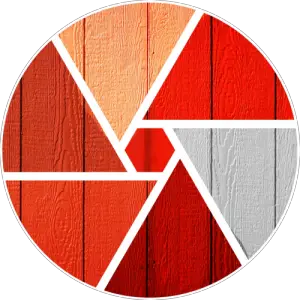











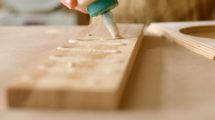

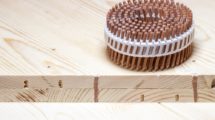


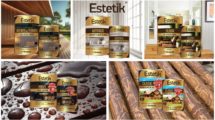

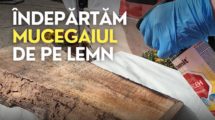





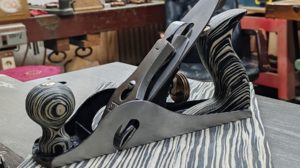
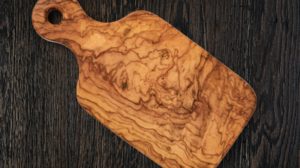









If someone wants to build a house out of cedar is it possible, and where can they find it?
Is it true that in Romania there is cedar and cedar oil where we can find it and be sure that it is real like the Lebanese and we are not sold something similar, thank you in advance good health!
Hello!
The cedar is not a tree specific to our country. It is grown for ornamental purposes, especially in the west and north-west of the country. That's why it's expensive and why Romanian builders don't use it for wooden houses.
Cedar lumber can be found at lumber dealers. Holver is one such distributor that also carries many exotic species, not specific to our country. They also sell cedar shingles.
As for the oil, you need to make sure of the reliability of the website or company selling this product. Unfortunately, we cannot help you with this information.
All the best!